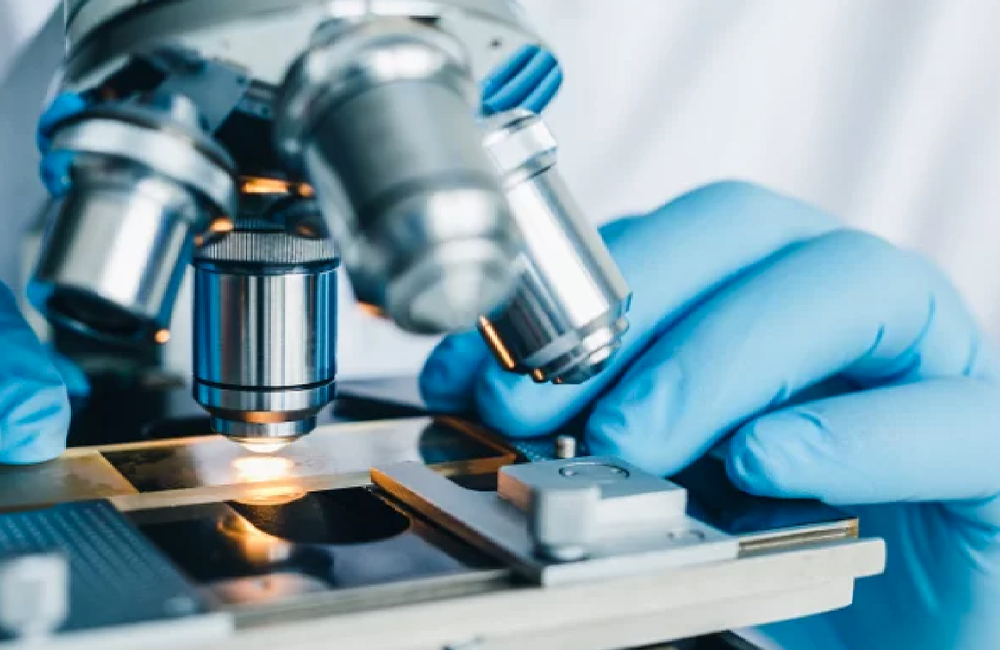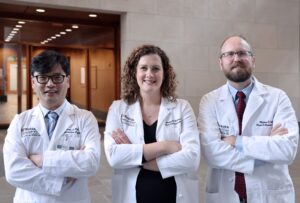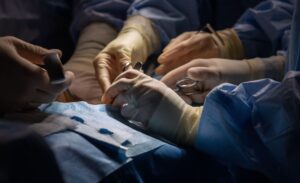Clinical Trials
Working together, Washington University physicians and Barnes-Jewish Hospital offer the many benefits of treatment at an academic medical center. One of the things that sets an academic medical center apart from other treatment centers are the clinical trials its physicians generate. In fact, many of our specialists are engaged in important clinical trials, where they work with colleagues and other scientists to discover new and better treatments for people like you.
Current clinical trials in our field of medicine are looking at ways to improve breast reconstruction surgery, enhance techniques to treat cubital tunnel syndrome and offer hope of movement to some people with paralyzing spinal injury.
Our surgeons and researchers collaborate with other medical fields healthcare institutions to coordinate clinical studies and bring innovative treatments to fruition. In some studies, we select patient volunteers to participate in two types of clinical trials: interventional studies and observational studies. An international study takes place in the final phases of testing a new medication or medical device; observational studies are used to track procedure outcomes and refine treatment techniques.

Improving Care for All
As a top teaching hospital and research institution in the U.S., Washington University School of Medicine makes a large number of clinical trials available to people treated by its specialists.
People who choose to participate in clinical trials help us deliver better care to all. Those who volunteer do so for a variety of reasons. A person with a paralyzing spinal cord injury, for instance, may volunteer for studies on nerve transfers in hopes of helping all those who suffer similar injuries. Someone else may volunteer for breast cancer-related studies because the disease is common in their family. Every clinical trial volunteer helps to improve healthcare for patients everywhere.
Active Studies
Long Term Function Outcomes and Pain in Implant-Based Post-Mastectomy Breast Reconstruction
Status: RECRUITING
The goal of this study is to observe long-term pain experienced with implant-based post-mastectomy breast reconstruction surgeries through physical well-being surveys. This clinical trial is sponsored by Washington University School of Medicine.
Study Population
Participants who have undergone breast reconstruction surgery with plastic surgery faculty at the Washington University School of Medicine Division of Plastic and Reconstructive Surgery.
Eligibility Criteria
| Ages Eligible for Study: | Adults 18 and older |
| Sexes Eligible for Study: | Female |
| Accepts Healthy Volunteers: | No |
| Additional Inclusion Criteria: | |
| Exclusion Criteria: | Known distant metastatic disease |
If you or your doctor want to learn more about participating in this study, please contact the principal investigator, Terence Myckatyn, MD, at myckatyn@wustl.edu or 314-996-3255.
Mechanomyography for Predictor of Prognosis in CuTS and PND Patients
Status: RECRUITING
The goal of this study is to observe long-term pain experienced with implant-based post-mastectomy breast reconstruction surgeries through physical well-being surveys. This clinical trial is sponsored by Washington This study investigates whether the identification and validation of non-invasive mechanomyography is a valuable predictor of clinical course and long-term prognosis for cubital tunnel syndrome and peroneal nerve decompression patients. This clinical trial is sponsored by Washington University School of Medicine and conducted in collaboration with the Mayo Clinic.
Study Population
Subjects will be recruited in the investigator’s patient population.
Eligibility Criteria
| Ages Eligible for Study: | Adults 18 and older |
| Sexes Eligible for Study: | All |
| Accepts Healthy Volunteers: | No |
| Additional Inclusion Criteria: | Patients who have a diagnosis of cubital tunnel syndrome or compressive peroneal nerve neuropathy and will be undergoing a decompressive surgery |
| Exclusion Criteria: | Patients who are unable to return for follow-up evaluation |
Locations
| Mayo Clinic | Rochester, Minnesota | Recruiting |
| Principal Investigator: Robert Spinner, MD | 507-293-1963 | Spinner.Robert@mayo.edu |
| Secondary Contact: Bambi Wessels | 507-293-1963 | Wessel.Bambi@mayo.edu |
| Washington University in St. Louis | Active, not recruiting |


